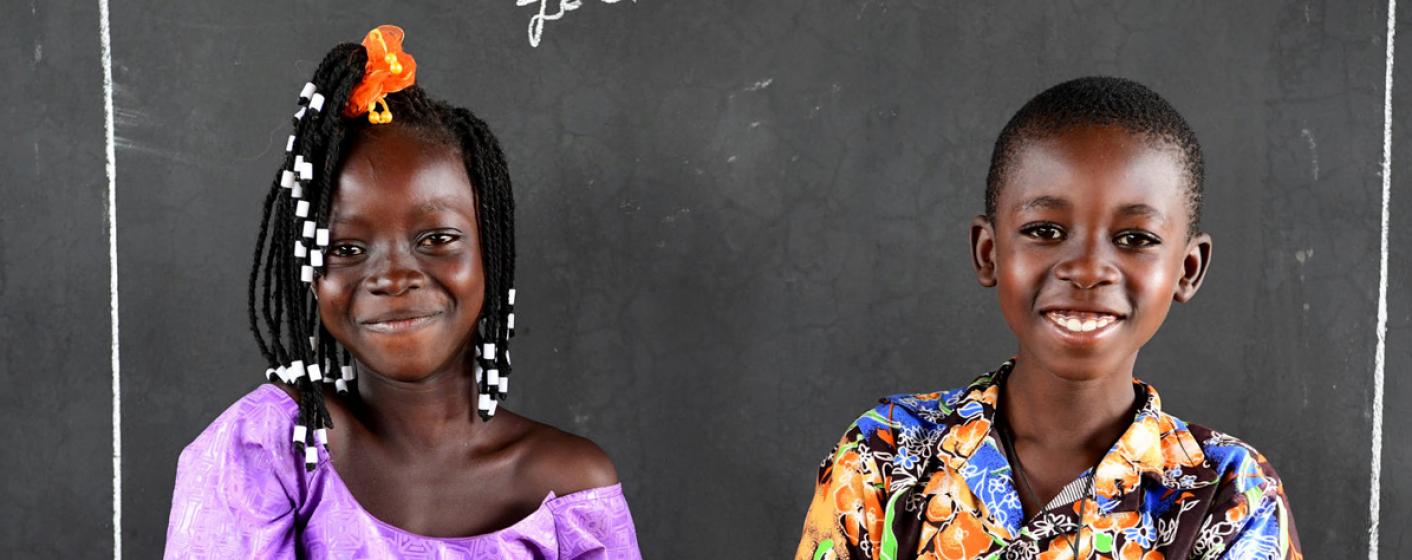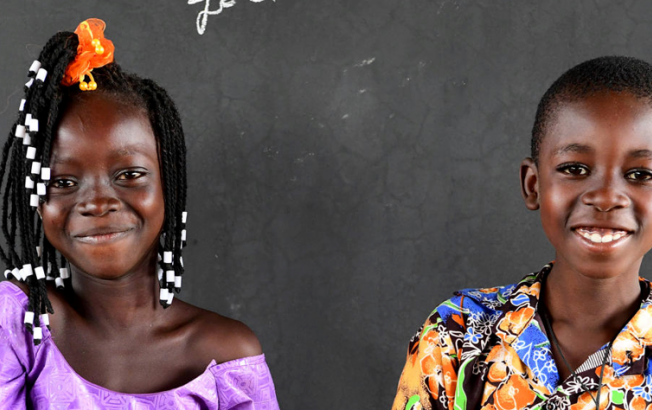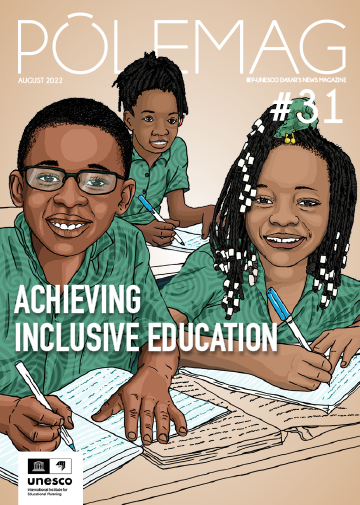Polemag #31 Editorial : We advocate a holistic view of inclusion
Check out the latest edition of IIEP-UNESCO Dakar's News Magazine, which focuses this time around on Achieving Inclusive Education, and stay up to date on what's been happening across our programmes.
By KOFFI SEGNIAGBETO - HEAD OF IIEP-UNESCO DAKAR
It is estimated that nearly 100 million children are out of school in sub-Saharan Africa, either because they have never been to school or because they left school too early. Across the continent, from the outskirts of cities to rural areas, universal access to equitable education remains a major challenge – yet it is a prerequisite for achieving inclusive education.
With our approach, there is not one education for the rich, another for the poor; one for girls, another for boys; one for children with disabilities; another for able-bodied children. We advocate for inclusive education systems, offering equal opportunities to all, regardless of where they live, their gender, their mother tongue, or their social, physical, or religious characteristics.
At the heart of this issue of inclusion is the crucial question of educational resource allocation. How can governments across the continent be helped to distribute staff equitably? How can we ensure that the best equipment and teaching materials are not disproportionately allocated to schools in capitals and large cities?
IIEP-UNESCO Dakar is working with African countries to plan and implement responses to these questions, as is currently the case in Burkina Faso, Chad, and Mauritania.
But beyond the specific projects, inclusion is an objective that cuts across all our efforts and actions. The Gender at the Centre Initiative (GCI) approaches it through the prism of gender equality. Our Support for basic education quality management programme works to improve equity in access to schools and knowledge acquisition. And our support for vocational training promotes a policy of skills development for all.
Inclusion is a key issue for the future of education in Africa, along with financing, demography, quality of education, and youth employment. This is not only the deep conviction of our regional office but also a key pillar of the IIEP-UNESCO strategy for Africa to 2024. It is together with African countries and our other financial, technical, and academic partners that we will be able to make a difference by 2030.



